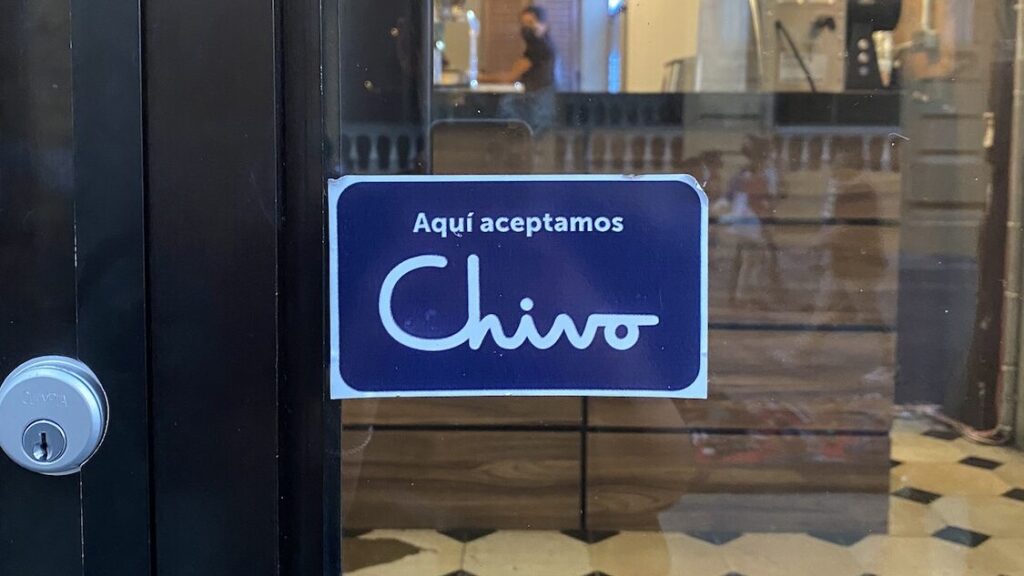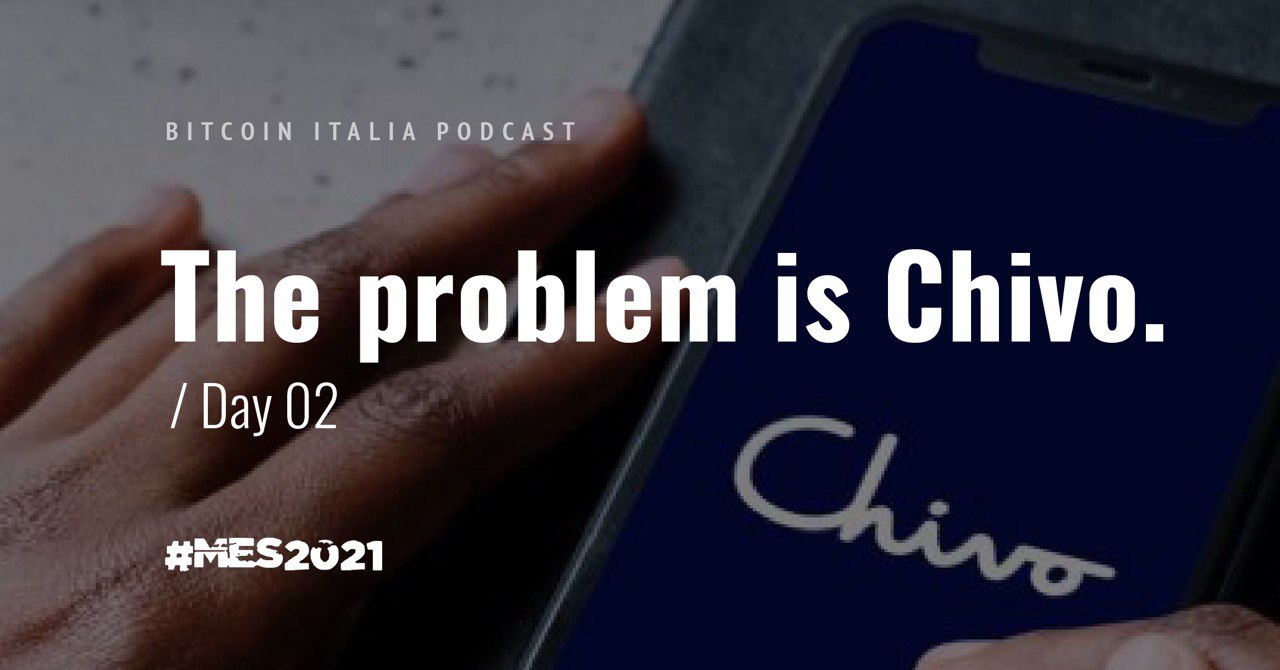

The first day spent entirely on the streets of San Salvador was a success beyond our wildest expectations. The city is beautiful. The chaotic hodgepodge of colors and smells that only Latin America can offer. The Salvadorans are a smiling and jovial people, full of curiosity and sincere empathy.
The goals we set for ourselves were few but vital: find food, adapters for local power outlets, and purchase SIM cards for our devices. Paying in bitcoin, of course.
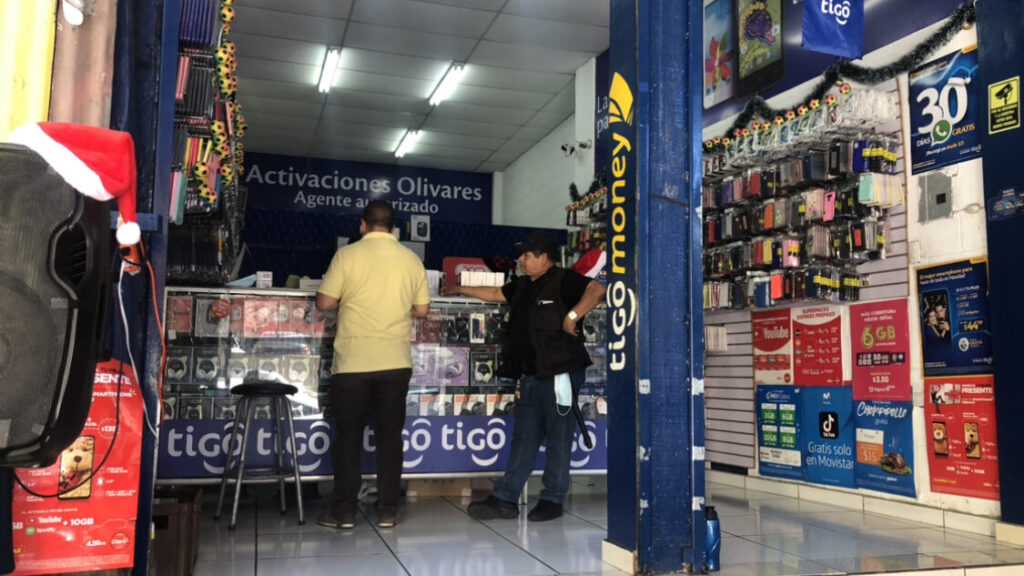
In a small electronics store we find two guys enthusiastic about our mission. They tell us that they gladly accept bitcoin but not credit cards: they cost too much in commissions. Interesting point this. Where money is tight, the commissions of the electronic payment giants are heavy and discourage their use. Throwing oneself into the many street markets, in fact, the glimpse is unequivocal: this is a society founded on cash. Everywhere merchants and customers walk around with wads of crumpled banknotes in their hands. It is the kingdom of the dollar where we are playing this game.
After a few phone calls, the two boys manage to retrieve some SIM cards. They come from outside the store and don’t ask for ID. The operation reeks of black market, but we don’t care much. All we have to do is insert them into the phones and they start receiving perfectly. When illegality works, as Steve Jobs would say, it just works. At the time of payment the two young people show us the interface of the Chivo wallet and here the headaches begin. The app is not very understandable and they can only generate a bitcoin QR, so we have to pay on the base layer without being able to take advantage of the speed of the Lightning Network. Not too bad. We sit outside the store looking around while we wait for the on-chain confirmations to arrive.
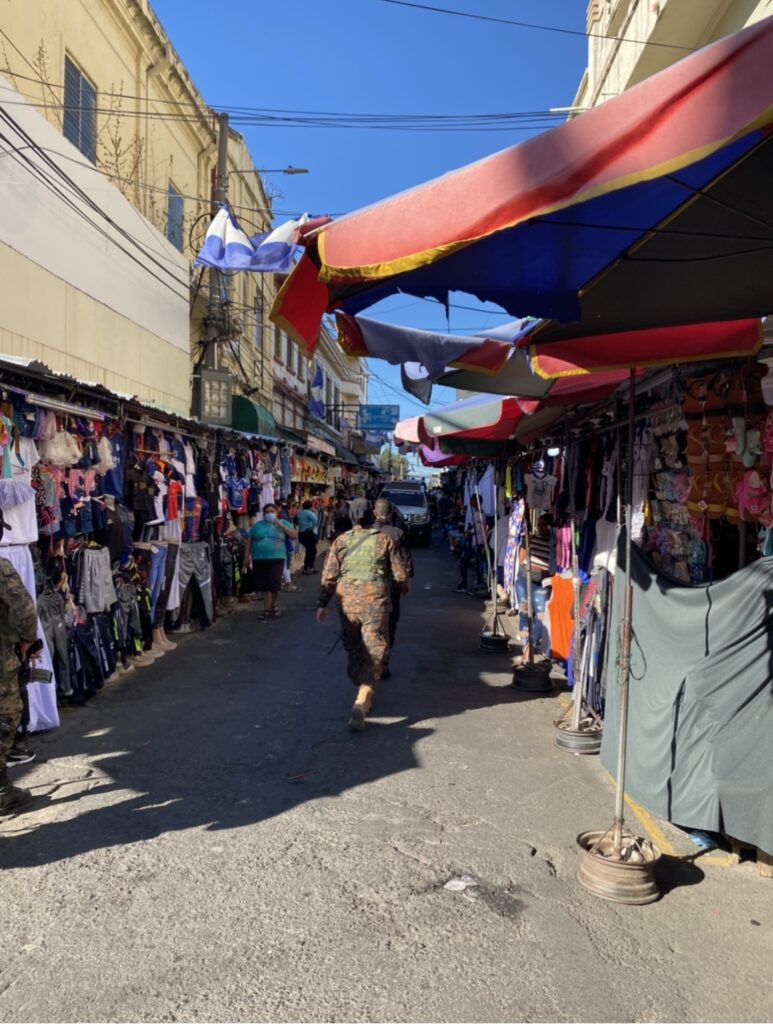
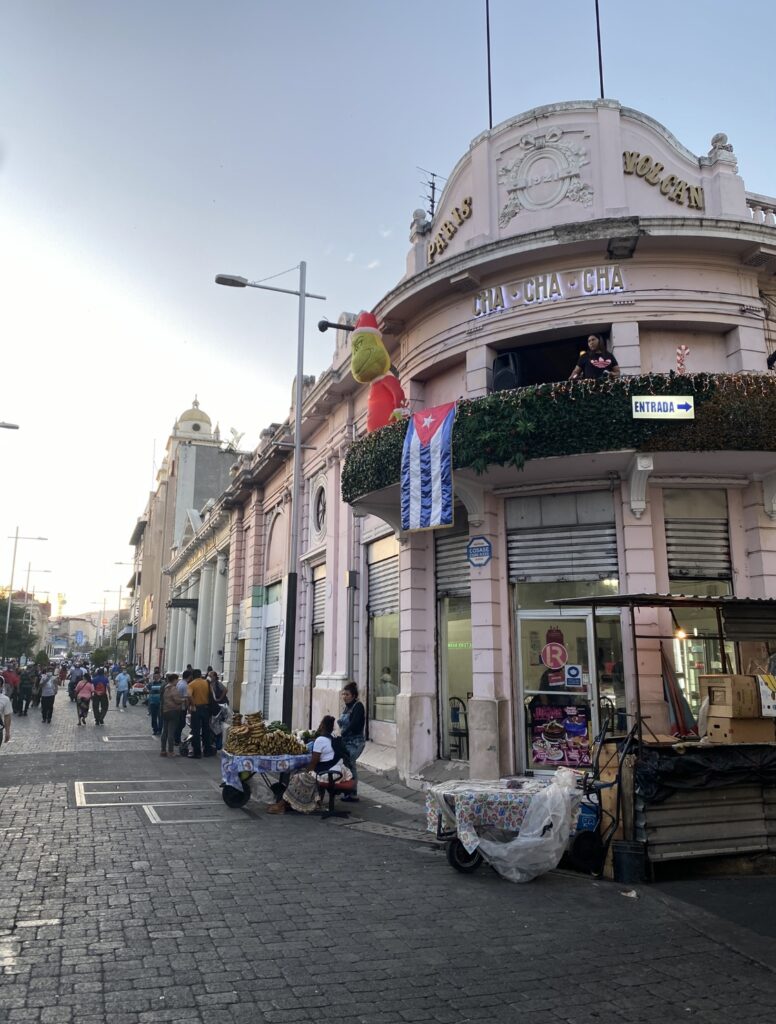
More complex will be finding a restaurant willing to feed us. We turn over a handful but none seem to accept bitcoin. They all respond in kind, sincerely sorry. Finally we spot a popular diner, with peeling walls and the right feeling. The owner makes us sit down: we eat. The food is excellent. Grilled fish, potatoes, rice and beans, pico de gallo and papusas, the traditional cornbread. At the time of payment, we have to explain to the owner how to generate a Lightning receipt. It is hidden in the menu of the app. Hard to find. Convinced that we’ve finally made it, we realize that the transaction starts from our wallet but doesn’t reach Chivo. Gone who knows where. We had already heard of a similar bug. But we hoped it had been fixed. We settle the score with another on-chain transaction but the wait allows us to talk to the owner to find out what he thinks about Bitcoin and Salvadoran politics. We discover that their use of the Chivo wallet is entirely similar to how we use PayPal. It offers a free electronic payment option and sending money from Chivo to Chivo is always instant. There are few tourists and he had never received payments from other wallets. He mainly uses it to exchange dollars with friends and clients. He’s not really clear on what Bitcoin is and absolutely doesn’t understand the difference between an on-chain transaction and a Lightning transaction. The app doesn’t help, the GUI seems to give more prominence to USD payments, almost as if Bitcoin is an accessory. He is interested in the technology, he says he wants to learn more, but points out that no educational initiative has been promoted by the government and that the few tutorials available only show the operation of the wallet without making the slightest mention of the protocol that supports it.
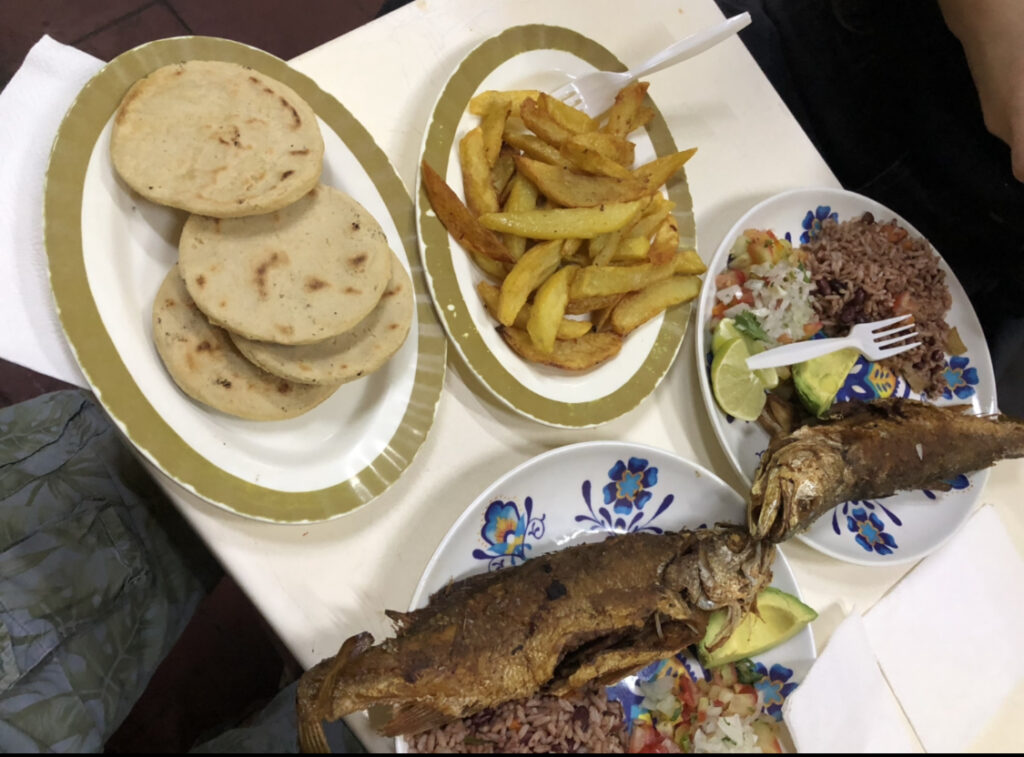
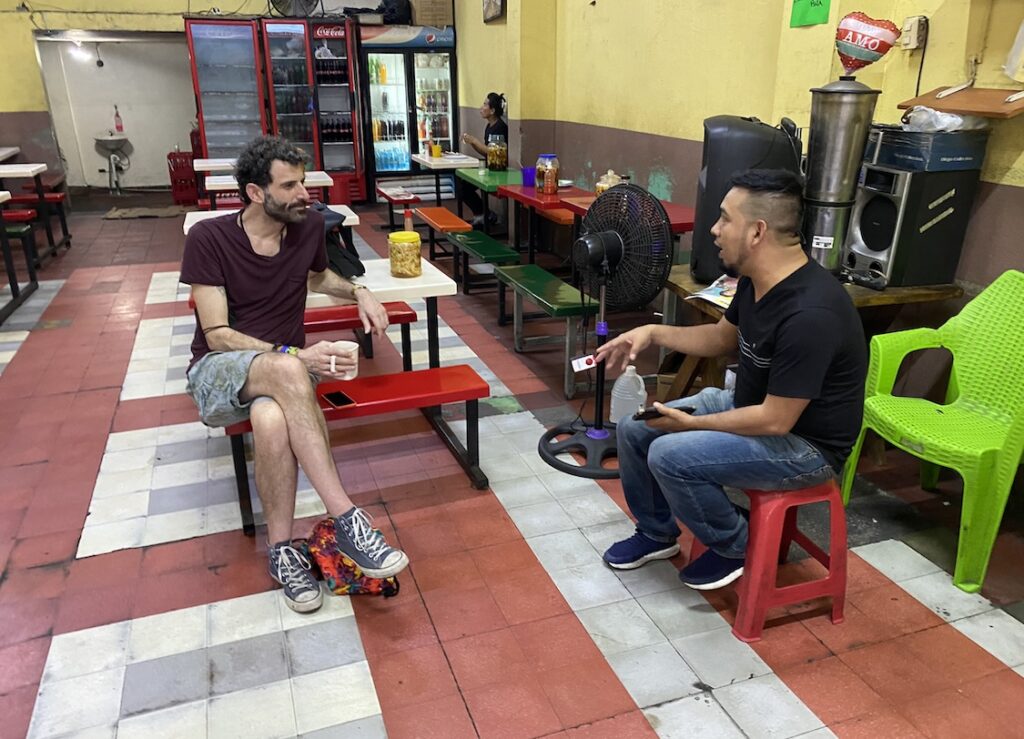
Downtown San Salvador is chaotic and festive. Groups of musicians entertain the dancing crowd. From the stores and stalls, Latin American music is ubiquitous. Street vendors trade all manner of beverages and snacks. The sunset over the cathedral is as bright pink as we’ve seen in a long time. Darkness falls quickly in the tropics and before returning home we have time to stop and have a couple of cocktails at a colorful and rather tacky street bar.
Un mojito y un margaridas, por favor.
Same old story. The barman generates a BTC address. We don’t have the will or the strength to explain how to generate a Lightning one. The evening is warm and the wind is refreshing. The music is playing and our drinks are delicious. Waiting ten minutes in these circumstances is not so annoying.
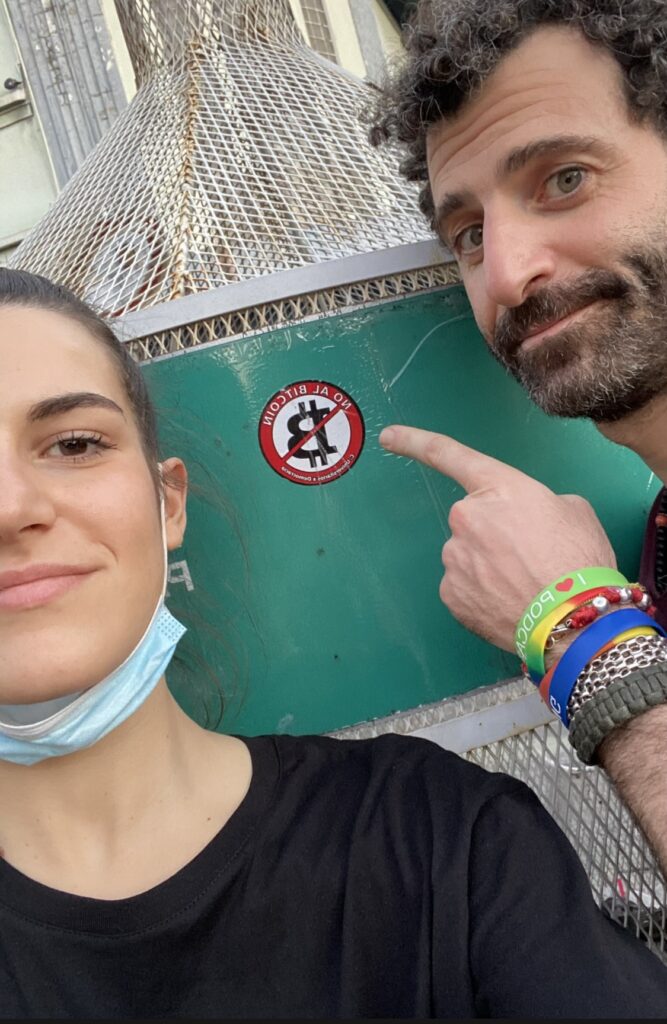
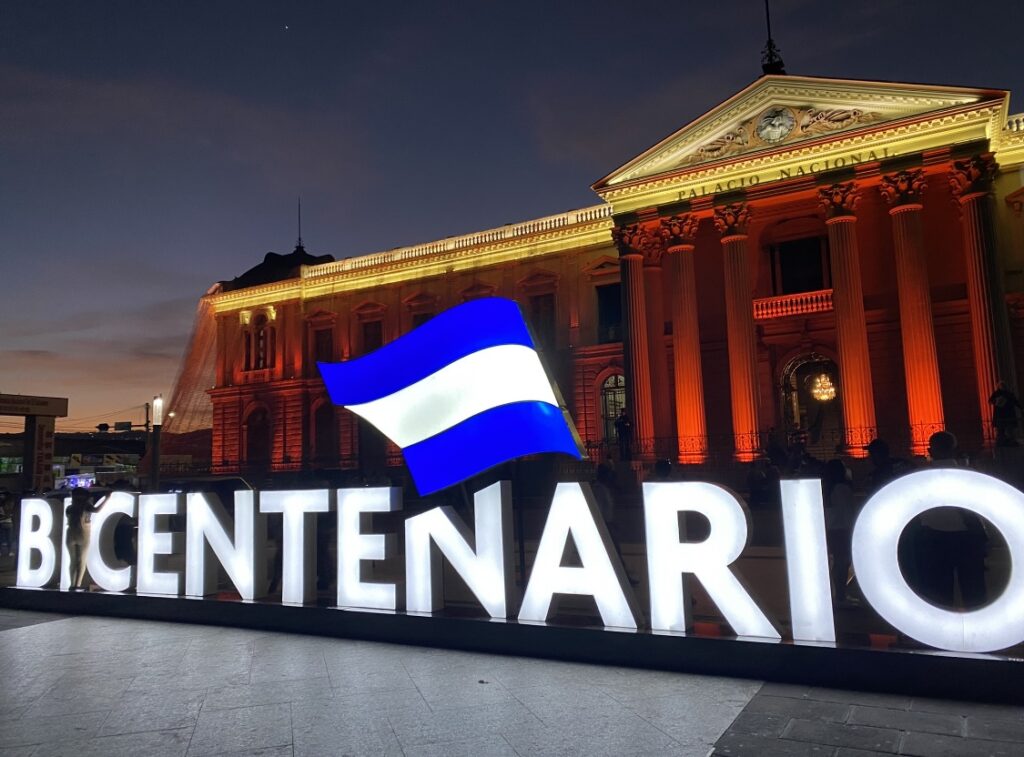
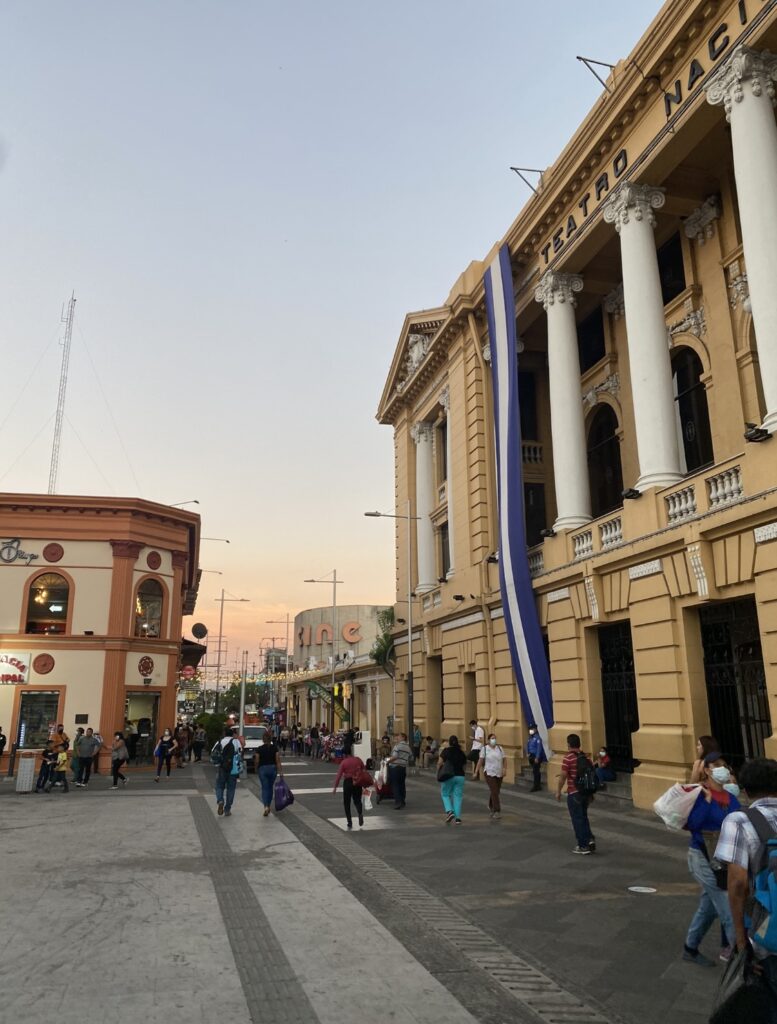
It’s too early to take stock of course and we’ll still have plenty of opportunities to delve deeper, but after the first two days in El Salvador we have the distinct impression that the bottleneck of the Bitcoin Ley is precisely the state wallet. It doesn’t take full advantage of the potential of the technology, it doesn’t offer opportunities for people to learn more, and it only works well with internal payments. Thus it almost runs the risk of being counterproductive. Confirmation of this is in the sticker we see on the outside of a downtown bar. It is all purple and instead of saying “we accept Bitcoin” it reads “we accept Chivo”.
